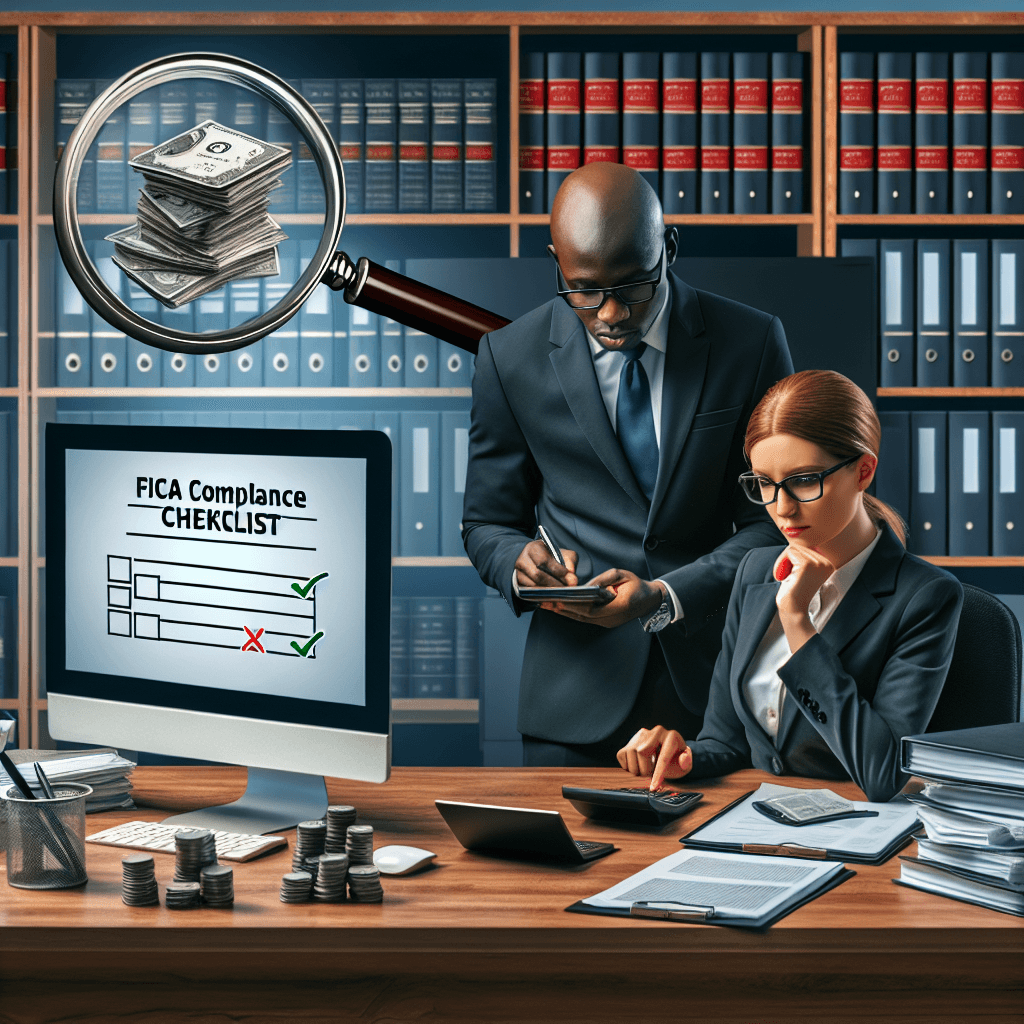Fica Compliance Audits For Legal Firms In South Africa

Click to view full size
FICA Compliance Audits for Legal Firms in South Africa
As a legal professional in South Africa, navigating the layers of regulatory obligations can be daunting, especially when it comes to FICA compliance audits. The Financial Intelligence Centre Act (FICA) imposes strict requirements on legal practitioners to combat money laundering and terrorism financing. Understanding the ins and outs of FICA compliance audits can not only help you avoid severe penalties but also bolster your firm's reputation and build client trust.
Understanding FICA and Its Importance
The Financial Intelligence Centre Act (FICA) was enacted to enhance the fight against money laundering and the financing of terrorism. For legal firms, this means implementing rigorous compliance measures to verify client identities and report suspicious activities.
Key FICA Requirements for Legal Firms
Legal firms in South Africa must adhere to several FICA requirements, including:
- Client Due Diligence (CDD): Verifying the identity and assessing the risks associated with clients.
- Record-Keeping: Maintaining comprehensive records of the client’s identification documents and transactional activities.
- Reporting Suspicious Transactions: Promptly reporting any transactions that appear suspicious to the Financial Intelligence Centre (FIC).
- Compliance Training: Regular training sessions for staff to ensure they are aware of their obligations under FICA.
What is a FICA Compliance Audit?
A FICA compliance audit is a systematic evaluation of a legal firm's adherence to the provisions set out by FICA. It assesses compliance processes, identifies areas of weakness, and suggests improvements. These audits can be conducted internally or by an external auditor specializing in FICA requirements.
Why Are FICA Audits Essential for Legal Firms?
- Avoidance of Penalties: Non-compliance can lead to fines or reprimands from regulatory bodies.
- Enhanced Security: Strengthening compliance protocols helps protect firms from becoming unintentional conduits for illegal activity.
- Improved Client Relations: Clients appreciate firms that prioritize legal and ethical responsibilities, which can enhance your firm's reputation.
- Operational Efficiency: Regular audits can identify inefficiencies in your compliance processes, facilitating smoother operations.
Preparing for a FICA Compliance Audit
To ensure a successful FICA compliance audit, follow these essential steps:
1. Review Existing Policies
- Ensure your firm's policies related to CDD, record-keeping, and reporting are current and align with FICA requirements.
2. Conduct Internal Audits
- Regular internal audits can help identify compliance gaps. Use checklists to evaluate adherence to FICA, such as verifying that all client records have been completed appropriately.
3. Train Your Staff
- Regular training ensures that your team is knowledgeable about FICA requirements. Continuous education helps in catching potential compliance issues before they become significant problems.
4. Maintain Thorough Documentation
- Keep detailed records of all compliance activities, including client communication and internal discussions. Clear documentation is essential during the compliance audit process.
Key Considerations During the Audit
Effective Communication
Clear communication among your staff is paramount. Make sure that team members understand their roles in the audit process and are ready to provide the required documentation.
Engaging External Auditors
If you’re considering an external audit, ensure the auditor is reputable and experienced in FICA compliance. They can provide a fresh perspective and identify compliance areas that your internal team may overlook.
Outcomes of a Successful FICA Compliance Audit
A well-executed compliance audit not only ensures adherence to legal requirements but also fosters an environment of accountability and diligence. Here are some potential outcomes:
- Improved compliance culture within the firm.
- Identification of high-risk areas and mitigation strategies.
- Enhanced internal processes for handling client data.
Conclusion
In conclusion, FICA compliance audits are not just regulatory hurdles; they are vital for maintaining the integrity and reputation of your legal firm. By understanding the requirements and preparing adequately for audits, you can safeguard your practice against potential fines and foster trust among your clients.
Investing in compliance not only protects your firm but also strengthens your commitment to ethical practice in the legal profession. To succeed in this area, keep up-to-date with FICA regulations and trends, engage your team in compliance training, and regularly assess your practices.
For further reading on FICA compliance and audits, I recommend visiting the Financial Intelligence Centre for the latest updates and guidelines.
Following these guidelines can help ensure a successful FICA compliance audit for your legal firm, leading to a strong foundation of trust and reliability in all your business dealings.
Related Articles
- Fica Compliance Requirements For Independent Financial Advisors In South Africa
- Kyc Procedures For Financial Service Providers In South Africa
- Fica Compliance Guidelines For Legal Practitioners
- Understanding Fica Obligations For Motor Vehicle Dealerships
- Kyc Solutions For Highvalue Goods Retailers
- Fica Compliance Checklist For Property Practitioners
- How To Achieve Fica Compliance For South African Businesses
- Kyc Best Practices For Estate Agents In South Africa
- Fica Compliance Training For Financial Advisors In South Africa
- Fica Compliance For Real Estate Professionals In South Africa
- Role Of Kyc In Fica Compliance For Financial Service Providers